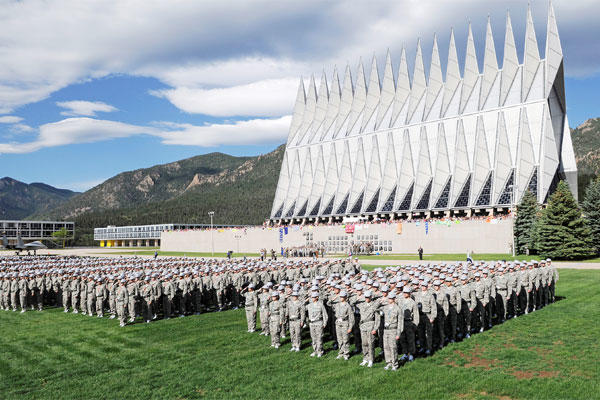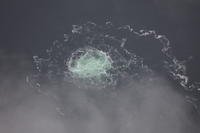The three military service academies showed declines in the number of sexual assaults and unwanted sexual contact in the 2013-2014 school year, according to a Defense Department report released Wednesday.
The report also reflected growing concern at the service academies that victims of sexual misconduct could face retaliation for reporting to authorities on incidents. The survey of the academies found that more than 40 percent of students who experienced unwanted sexual contact also felt that they could face retaliation.
The total number of sexual assaults at the U.S. Military Academy, the U.S. Naval Academy and the U.S. Air Force Academy decreased from 70 to 61 in the 2013-2014 school year compared to the previous reporting period in 2012-2013.
The report showed that the Military Academy at West Point in New York received a total of 11 reports of sexual assault, an increase of one. The Naval Academy at Annapolis, Md., received 23 reports of sexual assault, an increase of eight.
The Air Force Academy in Colorado showed a major decline in sexual assault reports, from 45 in 2012-2013 to 27 in 2013-2014.
"Each sexual assault case is a tragedy," Lt. Gen. Michelle Johnson, superintendent of the Air Force Academy, said in a statement. She said faculty and staff "remain committed to providing an environment that cares for and supports victims" and also remain determined "to hold perpetrators accountable."
The report noted that sexual assault statistics did not necessarily reflect the actual number of sexual assaults, since the crime often goes unreported.
A separate anonymous survey conducted by the Pentagon showed progress in reducing the number of unwanted sexual contacts at the three academies.
A total of about 8 percent of female students at the academies and one percent of men reported experiencing unwanted sexual contact, compared to 12.4 percent for females and 2 percent for men when the survey was last conducted in 2012.
On sexual harassment, the survey showed that nearly half of the women at the three academies and 10 percent of the men said they experienced some form of sexual harassment in the latest reporting period.
"While survey estimates indicate there were fewer sexual assaults this past academic year, responses also suggest that sexual harassment remains a problem area for the academies," said Elizabeth Van Winkle, an official in the Defense Research, Surveys and Statistics Center. "All of these behaviors fit into a continuum of harm."
For the first time, the report and the survey looked at the problem of retaliation at the academies for reporting sexual misconduct. A survey last year of the active duty military found that more than 60 percent of women who filed sexual assault complaints also reported that they felt they were targeted for retaliation.
At his recent Senate confirmation hearing, Defense Secretary nominee Ashton Carter was questioned by Sens. Kirsten Gillibrand, D-N.Y., and Claire McCaskill, D-Mo., on the retaliation issue and he pledged to make prevention of retaliation a top priority.
-- Richard Sisk can be reached at Richard.Sisk@military.com.





























